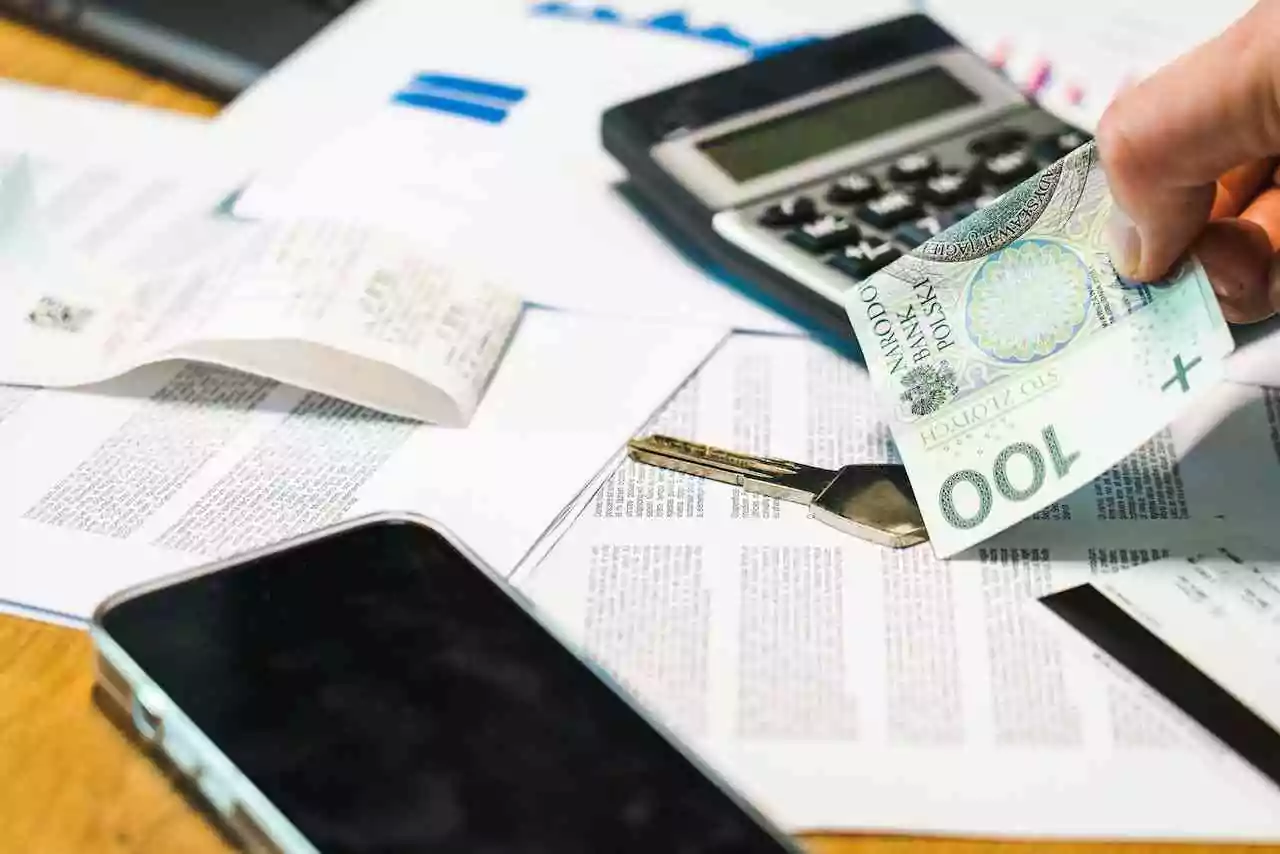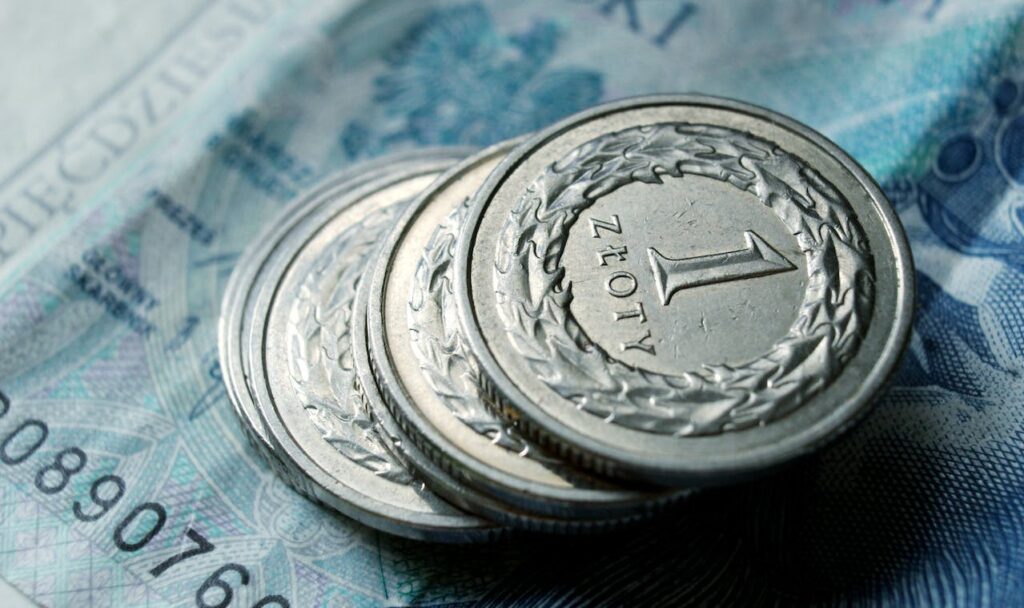Science
Inside China’s “Robot Schools”: Humanoid Robots in China Learn Work
14 February 2026

Polish people, along with South Koreans and Swedes, are among the nations most inclined to use card or smartphone payments. However, cash in the form of banknotes and coins still prevails in many countries, including Egypt, the Philippines, and Morocco. This traditional method of payment is also the choice of most Germans and Austrians.
Financial operations which do not involve physical cash are called cashless transactions. In other words, these are financial settlements where funds are transferred from one bank account to another without the use of traditional cash, but rather through entries on the accounts of the transacting parties.
Cashless transactions include electronic transfers, as well as payments made with cards (debit, credit, prepaid, or charge cards), smartphones (e.g., using the BLIK system in Poland), and less commonly, other items like key fobs, etc. Currently, nearly two-thirds of Poles prefer this type of settlement. Payment cards are the most popular, although the number of users of mobile phone-based systems is rapidly increasing. Users primarily cite ease and convenience as advantages of these payment forms (no need to carry a wallet with coins, no waiting for change). However, disadvantages include leaving a transaction trace and the associated lack of anonymity. There is also a concern over less control over expenses (virtual money is easier to spend than ‘real’ money) and the subsequent difficulties in maintaining household budget discipline (increasing the risk of falling into a debt trap). Some customers also worry about the security of their personal data, which is processed during electronic transactions.
Residents of different countries show varying preferences in payment methods, influenced by factors such as tradition, developmental level, technological infrastructure, habits, and other aspects. For example, it is easier to make cashless payments in technologically adaptive South Korea than in conservative Egypt. Meanwhile, in Africa, where there is a scarcity of card authorization terminals, and as a result mobile phone payments are rapidly gaining in popularity. This trend is also linked to the region’s underdeveloped road network, as transporting cash can be time-consuming and dangerous. Consequently, young people working in large cities often use smartphones to send money to their families in remote areas.
According to a Global Web Index survey from October 2020, South Koreans (77%), Poles (75%), and Swedes (74%) are the most inclined towards cashless transactions. Conversely, the Philippines, Egypt, and Morocco are at the other end of the spectrum, with just over 30% of residents using cards, smartphones, etc., for payments.
Some countries have a significant portion of residents who express a preference for non-cash payments, like 60 to 67% of Japanese, Spanish, and French populations. However, in reality, most of their transactions are still conducted in cash. This is due to the underdeveloped infrastructure for card or other cashless methods (like smartphones or smartwatches). Interestingly, the situation in the United States is somewhat reversed. Here, just over half of the population would prefer electronic payments, yet over two-thirds actually use them, indicating that some may be doing so out of necessity rather than preference.
The lack of alternatives to cashless payments became a topic of significant public debate in the early 2020s. Several years prior, the Polish Panoptykon Foundation had already highlighted the dangers associated with the unrestricted expansion of this payment method. The foundation acknowledged that reducing the use of banknotes and coins saves the state (and citizens) the costs of storing and transporting cash, and decreases the number of robberies, including bank heists. However, on the other hand, the foundation’s experts appealed for maintaining a margin for cash payments, as citizens might want to remain anonymous in certain situations. Cash unexpectedly became a symbol of free choice, representing one of the increasingly limited values: privacy. This period also dispelled the myth of the high security of electronic transactions, as it coincided with the rise of specialized cybercriminals.
During the lockdowns associated with the pandemic, cashless payments ensured the stability and fluidity of financial transactions. However, the debate over the complete abandonment of banknotes and coins has recently rekindled. Interestingly, the defense of cash has united diverse political spectrums: from extreme right-wing libertarians to leftists. “The Bastille of 1789 was a fight for the right to freedom. Today, the dismantling of the digital Bastille is part of the struggle for our right to privacy,” asserts Andżelika Serwatka, an expert from the leftist Institute of Civic Affairs. Meanwhile, the right-wing Free Switzerland Movement is gathering signatures for a referendum to add a clause to the national currency law. This clause would regulate how the central bank and government manage the money supply, ensuring that a sufficient amount of banknotes and coins always remains in circulation.
In a surprising twist, it is the merchants, specifically Czech restaurant managers, who are coming to the aid of activists advocating for the preservation of cash payments. These managers, reluctant to bear the costs of commission and terminal connections, are refusing to accept card payments. This trend is evident in establishments like Labská Bouda, Hančova Bouda, and many taverns in Špindlerův Mlýn in the Krkonoše Mountains, where cash is demanded. “If I put a hundred Czech crowns in paper form into circulation, it always amounts to a hundred crowns at the end. If done electronically, it never amounts to the full hundred. A portion of that amount goes to banks, diminishing the purchasing power of the people,” explains Václav Jirák, owner of Pizzeria Andel in Špindlerův Mlýn, in an interview with the Deník newspaper.
Interestingly, refusing cashless payments is legal in the Czech Republic – businesses are not obliged to accept this form of payment. The situation in Poland is different: since 2022, there has been a mandatory requirement to accept cashless payments through payment instruments, and refusal can result in a fine of up to PLN 5,000. On the other hand, in Poland, a seller also cannot refuse to accept payment for a product in cash, even in the smallest coinage.
Forecasting future payment methods is challenging due to the clash between two trends: the modernization of electronic methods and the persistence of traditional means, namely millennia-old coins and comparatively younger banknotes.
A variety of payment methods are emerging. Among the solutions in use are VISA Direct, enabling direct money transfers between cardholders of this network, and Google Pay, an online payment system for settling dues in apps, stores, banks, etc. The WhatsApp payment app, allowing instant payments in the messenger application after linking a bank account or card, and mobile payment systems like BLIK, Bizum, Venmo, etc., facilitating rapid transfers based on a phone number linked to a bank account, are gaining popularity.
You may also like:
“In recent years, we’ve observed a significant increase in the popularity of cashless payments like BLIK. These innovative methods simplify and accelerate the payment process, offering greater security than traditional cash payments. Many people believe that cashless payments could eventually replace cash entirely. However, it’s important to remember that cash is still a widely accepted form of payment and continues to be used in many places and situations,” says Zbigniew Jagiełło, former CEO of PKO BP, ex-member of the Polish Bank Association Council, and initiator of the Polish BLIK payment standard, in an interview with Holistic News.
Biometric systems for confirming transactions and identity (like fingerprint or facial recognition) are already operational and will likely become increasingly common in finance. This could also include iris scanning, voice recognition, or geolocation. Combining these methods will enable context detection of the user’s situation, proposing suitable payment tools with appropriate security levels. There is a particular focus on enhancing voice assistants to enable repetitive purchases with a short command, linked to the payment method.
Central banks, responsible for the functioning of the banking system and conducting monetary policy in various countries, are not passive in the face of technological advancements in finance. Many advocate for abandoning the physical form of money in circulation in favor of digital means.
The Bahamas have pioneered this change, implementing a reform in October 2020, which led to the introduction of so-called Sand Dollars. A year later, Nigeria introduced the first digital currency in Africa and the second in the world, the eNaira. Some countries, such as China, have introduced an expiration date for this digital money (temporary money), meaning it can be used to settle obligations only up until a specified date (after which it ceases to exist). In practice, this compels users to consume quickly, stimulating demand and boosting macroeconomic indicators, while significantly limiting savings opportunities.
A Central Bank Digital Currency (CBDC), issued solely in electronic form, represents a modern version of money, distinct from cash, introduced to circulate as a legal tender. What makes it innovative? Beyond its digital format, it has programmable capabilities, meaning it can be restricted to specific transactions or payments only after certain conditions set by the issuer are met. This feature raises the most doubts. Unlike cash, digital currency is not universal (it cannot be used for any transaction). The central bank, as the issuer of digital currency, gains extensive capabilities to monitor and analyze all financial flows.
State authorities and bankers argue that the introduction of CBDC will significantly aid in combating crime and terrorism. It will also streamline fund transfers, especially cross-border transactions, and enable those who have not previously used digital payment solutions to do so.
On the other hand, CBDC, which effectively limits financial transactions to cashless ones, brings numerous risks. It signifies the end of transaction anonymity, allows for the introduction of payment amount limits (for instance, in the Bahamas, one can currently spend up to 1,500 dollars a month in this manner), provides banks with a tool for applying negative interest rates, and enables states to disburse social benefits or other forms of support with an expiration date. From a macroeconomic perspective, CBDC significantly facilitates countries in regulating the monetary base, i.e., the amount of money in circulation, making it easier to manage debt and inflation.
It is hard to disagree with the argument that a world where all transactions are recorded and potentially tracked resembles an Orwellian dystopian nightmare. It would be the realization of the worst fears and the implementation of sick totalitarian ideas. Cash, though antiquated, ensures freedom of choice and prevents widespread surveillance. Additionally, it provides a means of payment for those digitally excluded, who struggle to navigate in a world full of modernity. From a social perspective, cash transactions employ millions of cashiers, bank employees, and even older people supplementing their pensions.
“I am not a fan of binary solutions. If someone wants to let their imagination run wild, I recommend Janusz Zajdel’s fantastic book from over 40 years ago, Limes Inferior, which, among other things, depicts a cashless world,” responds Zbigniew Jagiełło to the question of whether cash should remain in circulation.
There will always be situations where we would like to spend money anonymously. Only cash can ensure such transactions. Therefore, despite acknowledging dozens of arguments in favor of cashless payments, it seems there should remain a margin of freedom for payments with rustling banknotes and jingling coins. A lack of choice is a straightforward path to enslavement.


Science
13 February 2026

Science
13 February 2026

Zmień tryb na ciemny